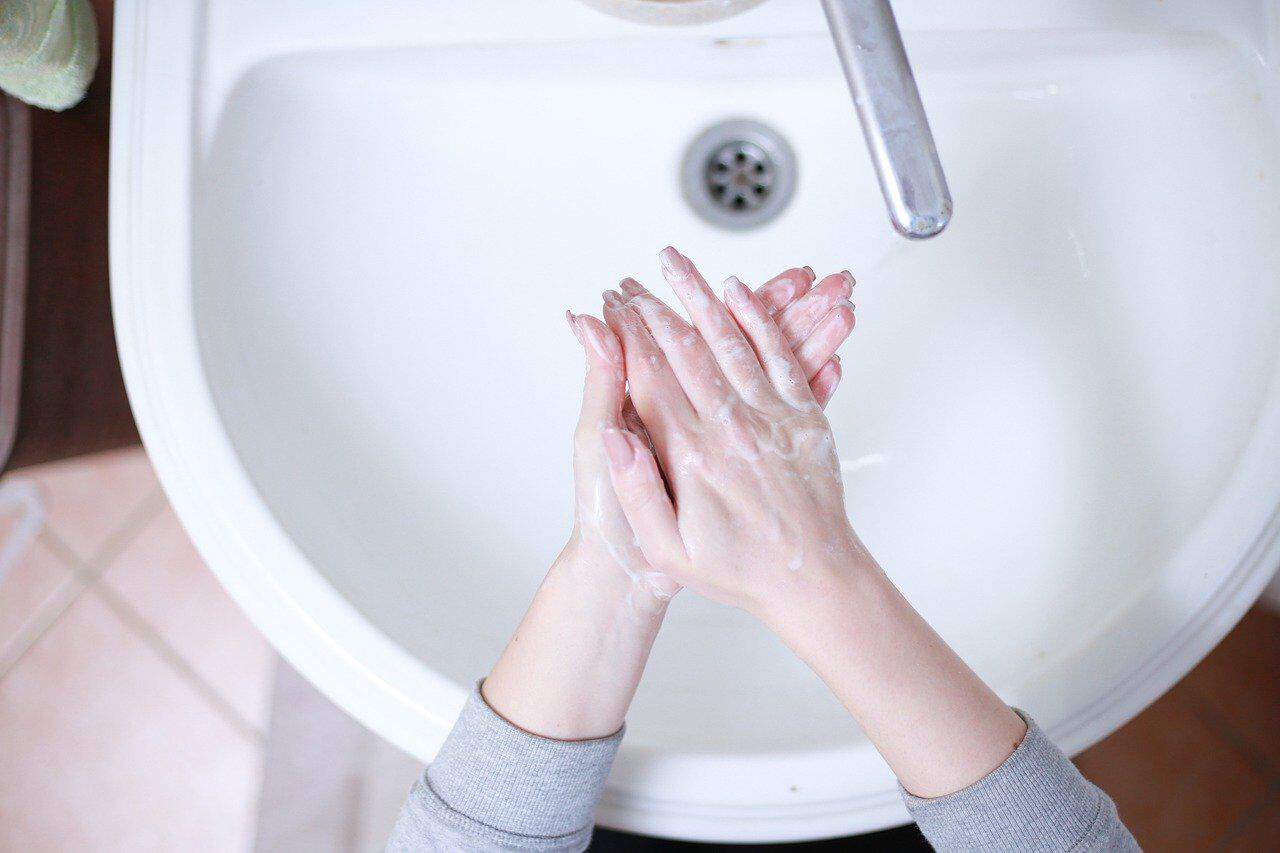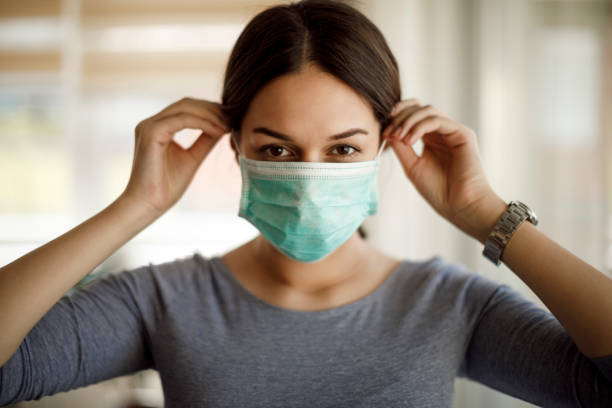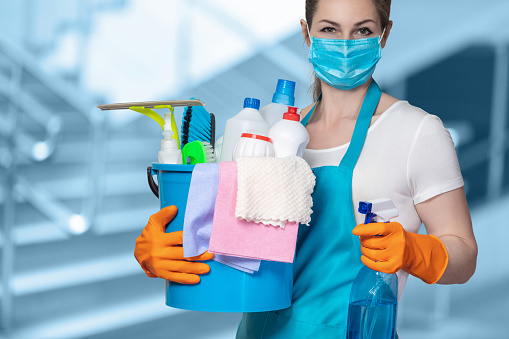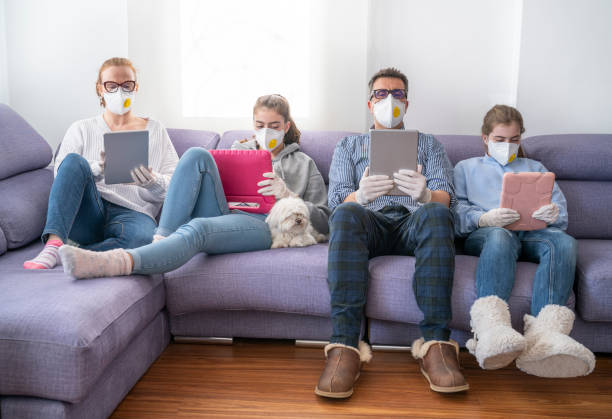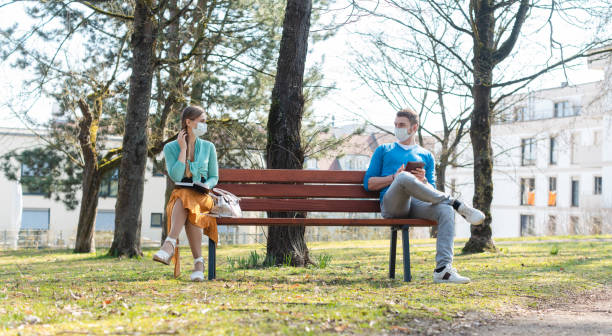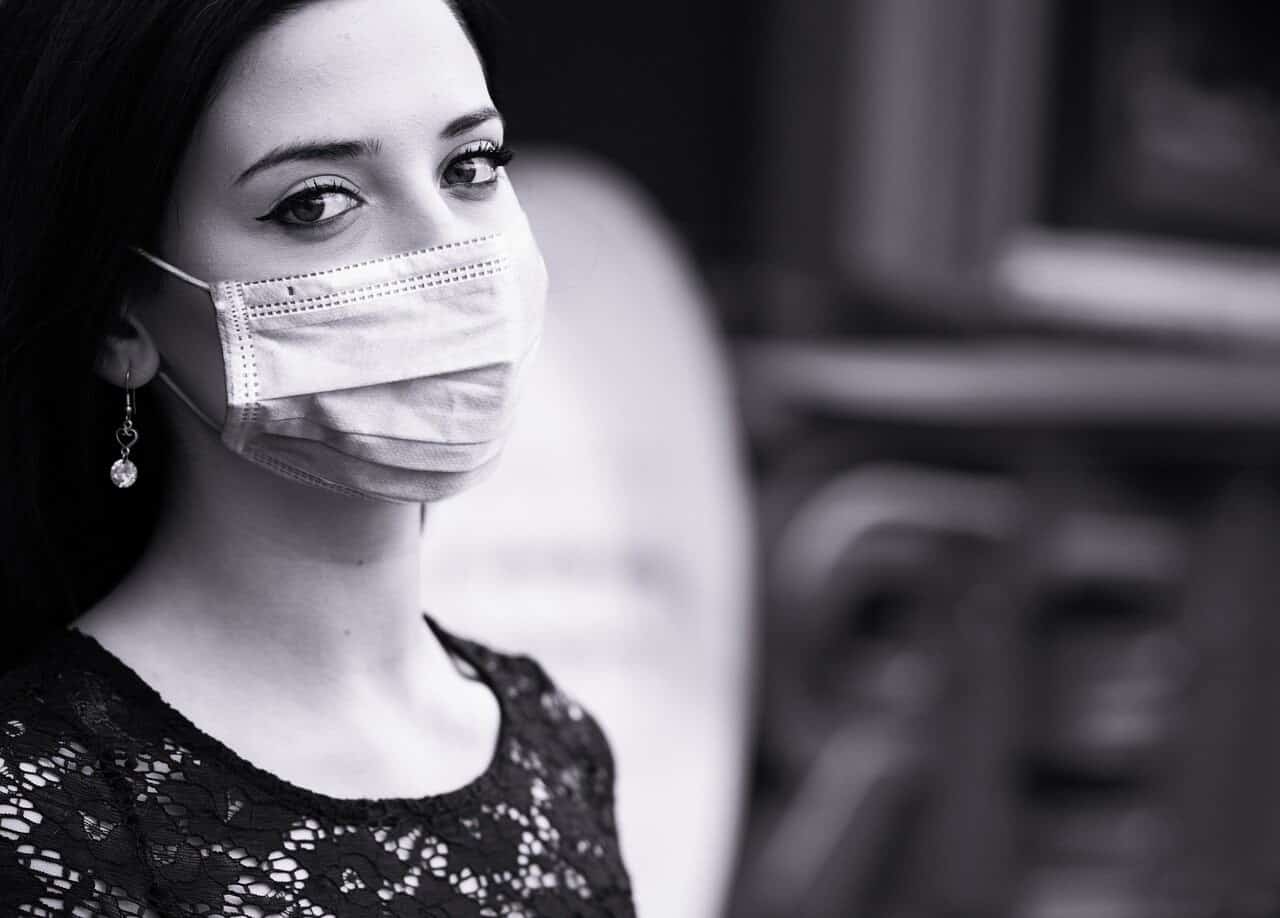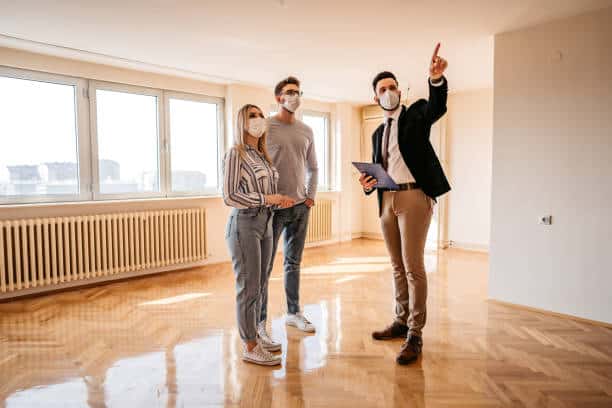April 16, 2020 at 3:28 pm
·
Justin Becker ·
2 comments
If you are a renter in a complex or community, there are many reasons why you might be worried about contracting COVID from your neighbor. With that said, the fact is that this would be unlikely – unless you live in a crowded, high–rise building with shared amenities and common areas.
At the pandemic’s beginning, more people were taking cover in their homes, waiting for the infection to pass. Similarly, public health officials thought apartments were a risk for spread because of how close together people are in them and how easy it would be for COVID particles to travel through air ducts or shared spaces
According to the Centers for Disease Control and Prevention (CDC) and the World Health Organization (WHO), however, the HVAC systems (heating, ventilation, and air conditioning) in congregate housing are not spreading COVID as widely as previously believed.
The truth is that everyone was still learning about the virus back at that time. Since then, we have all realized the need for a proper ventilation system for people living in large apartments and shared places, like the gym and laundry rooms.
Apartment Living and Coronavirus
Given that apartments are supposed to be safe, they do pose a threat to residents who do not follow proper COVID safety measures. Staying indoors and avoiding contact with other residents can certainly reduce contracting the virus.
Is your residence a secure environment? Are you concerned about contracting the virus? All of these are concerns that many residents have. So, we are here to help you find out what is going on and how to avoid getting the virus while living in your apartment.
Let us find out all you can do to avoid getting COVID in apartment complexes.
How COVID is Spread
COVID is a respiratory illness caused by the severe acute respiratory syndrome coronavirus 2 (SARS-CoV-2). It can be passed from person to person through coughing, sneezing, or close contact with an infected individual.
Person to person transmission can occur in a variety of ways, including:
Airborne Transmission
According to the CDC, the virus can stay in the air for up to three hours. Although it is unclear how much COVID is carried in the air, you are likely to become infected if someone breathes out and you breathe in that same air.
Surface Transmission
COVID transmission in this form is one of the most common. If an infected individual coughs and the particles land on a surface, whether it is a doorknob, a countertop, or anything else, you will be in danger of becoming infected if you end up touching that area. According to the CDC, the virus can survive on a surface for up to three days, so undertake a thorough cleaning of your apartment to avoid becoming infected by surface transmission (learn how to reduce dust in your apartment here).
Droplets or Aerosols
COVID-19 transmission can also take place in this way. When an infected person coughs or talks, little droplets called aerosol transport the virus into the air, putting anyone within six feet of the sick person at higher risk of contracting the infection.
This is why it is always advisable to wear masks while talking and stay at a safe distance to avoid breathing in contaminated air. If possible, avoid meeting individuals in person. Instead, conduct most of your meetings remotely and meet people only when essential.
How to Avoid Getting Coronavirus in Apartments
The first line of defense against a pandemic is to avoid getting infected, ofcourse. In an apartment complex or community, it is important to be aware of the residents around you and know how they get infected. For example, if someone has the flu, they may have come into contact with it by shaking hands with someone sick or touching an object that has been infected.
With that said, here are common tips you can use to avoid getting infected:
Mask Up Before Opening the Apartment Door
If you don’t wear a mask, you and your family will be at higher risk. Before opening the door to leave your unit, make sure you are wearing a mask, whether it is a surgical mask or a cloth mask.
Furthermore, using the correct type of mask can help you from contracting the infection. An N95 mask is the ideal sort of mask to wear, according to OzSAGE, an independent organization of researchers. Wearing this type of mask will provide additional protection to you and other community members while interacting. With that said, for everyone’s safety, masking up alone is not enough; so advise your visitor(s) to do the same.
Act as if Everyone in Your Apartment Building is Infected
Having the mindset that everyone around you is infected and that you should not take any chances can help you and your family members’ well-being. This mindset will assist you in taking the necessary precautions, such as handwashing, wearing a mask, and keeping a safe distance from your next-door neighbors and others.
Get Vaccinated
Getting vaccinated could save your life and prevent you from catching the illness in the first place. Even though no vaccination is 100% effective, the reduction in COVID-19 transmission has been enormous due to them. The vaccine has been shown to improve the body’s immunity and aid in the battle against infection.
Avoid Poorly Ventilated Indoor Spaces
Apart from getting the vaccine, staying away from poorly ventilated areas is crucial. Poorly ventilated spaces put you at danger of inhaling virus-carrying aerosols or particles, which ultimately puts you at risk of infection. You need fresh air, but wear a mask to avoid breathing in the airborne particles if you absolutely must be there. Ensure to keep the windows and doors open as much as possible, too.
Be Careful While Visiting Common/Shared Areas
One of the most common areas where you can contract the virus is in a gym locker room. Locker rooms are often moist and provide the perfect environment for the virus, which, remember, could live for up to two to three days.
Another example of a place where you can easily contract it is in laundry rooms, like a laundromat or even your own home. The virus can be found on your clothes or in the air as you dry them.
Please be cautious when visiting these locations. When you go to the gym or laundromat, remember to bring hand sanitizer with you.
Avoid Getting on Crowded Elevators
COVID-19 is a life-threatening illness that can be transmitted by merely breathing the same respiratory droplets in the air as someone who has the disease. Scientists have found that COVID-19 is most commonly spread through prolonged contact with the patient.
To avoid getting COVID-19, it is important to distance yourself from those infected because it is impossible to know if an infected person will develop other symptoms and transmit the virus. A crowded elevator can pose a great risk to your health; take the stairs if you can or wait a little longer for another empty elevator.
The property owners of your apartment complex should take measures to curb the spread of COVID-19, too. Consider asking your property manager about limiting the number of people on the elevator at one time, if they don’t already. Also, remember to inquire whether the elevator’s high-efficiency particulate air purifier can operate efficiently.
Wash Your Hands Frequently
If you want to take extra precautions, wash your hands as frequently as possible. Do this because it is difficult to keep track of how many items you have touched while out and about. Cleaning your hands will help you avoid contracting the virus.
Fix Broken Exhaust Fans
Another potential risk of contamination in your housing unit is shared ventilation systems, which is especially common in older buildings when the same system connects the kitchen and bathroom. As a result, keep your fans functioning at all times. If they stop operating, call your apartment maintenance specialist as soon as possible.
What to do if Someone in Your Apartment Complex Contracts COVID
A COVID-19 infection can harm someone’s mental health; thus, you must provide the finest possible care. That is why you must act as a nurse and provide room service. Fortunately, you do not need to be professionally trained to attend to an infected person, just follow these steps:
Choose a ‘Sick Room’ for them to Isolate in
Isolate the ill individual (self-isolating) in a room and make sure they spend their time alone, with the exception of going to the bathroom.
Pick a ‘Sick Bathroom’ and Avoid Sharing for Safety Purposes
Do not share a bathroom with the ill person; choose a dedicated restroom for them to use. Since COVID-19 can stay on hard surfaces for longer periods, sharing a bathroom can ultimately be dangerous.
Keep their Laundry Separate
When washing clothes, keep theirs separate from the rest. Ensure you have a separate basket, and when you bring clean ones in, leave them at the door for the ill individual to pick up.
Final Thought
The CDC recommends taking measures to fight this virus. When you are in close contact with an infected person, it is important to wash your hands as often as possible to avoid the COVID-19 virus. You should avoid going out into public places and practice social distancing from people who show signs of COVID-19 infection.
Also, if you are inside and the ventilation system is not working properly, make sure the landlord hires air conditioning engineers to fix it so you can breathe some clean air, and be sure to open windows for fresh air as often as possible.
Read more
March 31, 2020 at 12:55 pm
·
Justin Becker ·
1 comment
Knowing how to find the perfect Keego Harbor apartments can be easier said than done. It is hard to find a place that has everything you need, in a location that is close to work and public transportation.
In addition, the pandemic‘s impacts have made finding a new home a more difficult task. This is because many people are worried about being infected with the virus. Also, since many have been financially impacted, they have no alternative but to downsize from a house to an apartment.
Apartment Search During COVID
With the housing market being so tight in many cities, people are looking for a place to live where they can save money. Renters have been facing the brunt of this problem with lease prices steadily on the rise.
This has led some people to look into apartments rather than traditional houses. Renting an apartment is less expensive and does not come with as many responsibilities, such as yard work and gardening.
With that said, the recent flu outbreak is leaving many people wondering how they will find a new place to live. If you are looking to move, it might be difficult because of the pandemic’s impacts on housing, and overall way of life.
This article will include tips on finding apartments that are in a good location, affordably priced, and more, all while staying safe during COVID-19.
Begin by Setting Your Budget
The first step to finding your next apartment is defining your rental budget. You may be surprised at how much you can save by defining a specific budget range. For example, if you are looking for a 2-bedroom apartment for rent that falls within the $1,500-$2,000 range, you may be able to find a spacious 1-bedroom apartment for rent for closer to $1,000, which may be more within your budget.
If you are working with a real estate agent, you and the agent must work together to define how much you can afford so they can show you listings within your price range and not waste your time. In addition, you can use a rent calculator to help you determine the rental price range you can afford based on your current income.
Use Online Tools
Physical apartment hunting can be fun, but it can also be dangerous, especially nowadays. One of the biggest risks, ofcourse, is catching the virus. It is a common misconception that you need to be kissed or coughed on in order to contract the virus, but that is simply not the case. For instance, nearly everyone will contract COVID if they enter an infected home and then touch their eyes or mouth before washing their hands.
In an effort to avoid contracting the virus altogether, online tools are a great way to find your dream apartment. With so many tools available, it only takes a few minutes to get an idea of what you want instead of heading out to tour the neighborhoods.
The first thing you should do is narrow down your search by location, price, number of bedrooms, and other specific needs. Once you have a list of potential apartments to look at, it is then a good idea to go on their websites and explore the amenities they offer.
Here is the list of websites to search apartments for rent:
- Craigslist
- RentCafe
- Zillow
NOTE: The rental property market is really competitive, and with a high number of scams being reported, it is very important to be careful while searching for apartments online. There are many ways scammers try to get your money and personal information.
Take Virtual Tours
The need for virtual tours has grown as more people are interested in renting instead of purchasing. A virtual apartment tour gives potential renters a feel of what it would be like to live in the unit without ever physically being there. Some companies have gone even further and offer 360° views so you can explore the property from any angle you please.
A virtual tour will give you the ability to see the apartment’s layout and help you determine whether or not it is worth touring in-person. With that said, virtual tours have not only lowered the odds of coming into close contact with people infected with COVID-19, they will also help save you time and money.
Do Heavy Research
When you search for an apartment to rent, you are going to be looking at dozens of sites. You will look at the prices, the reviews, the photos, and more from various listings.
The research process of renting an apartment is going to take up a lot of your time, if done properly, but it will also help ensure that you find the right place for you.
Generally, if you are considering renting an apartment, one of the most important tasks is to find a neighborhood that meets your expectations. These days, there are many ways for people to learn about prospective neighborhoods. For example, one method is to use Google Street View, which is a program that allows you to explore the streets and learn more about the area where you want to live.
You can also use various websites to research cheaper cities cost of living, crime rates, among other things. Keep organized notes and prioritize what is important to you in order to pick the perfect location.
Make a Case for Yourself
Many have fallen behind on their rent since due to the COVID-19 outbreak. In fact, one out of every three Americans has missed at least one rent payment.
As a renter, you know better than anyone how difficult it is to find rentals when you are behind on your payments. Your chances of getting approved will be better if you can establish your financial stability by paying your entire move-in cost in advance, if not more (i.e. security deposit for an apartment, first month’s rent, and additional months if possible) or proving that you have been making consistent lease payments with your current or previous landlords.
A good credit score will also assist you in proving your case, especially since it is a great indicator that you are good with financial management.
Consider Signing a Lease without Seeing the Apartment
We would not normally recommend this, however with the onset of the new social distancing measures, people may have to sign their lease virtually for security reasons. Not to mention that vacant apartments are gone in a blink of an eye in this market.
How COVID-19 has Affected Americans Financially
A foreclosure moratorium for anyone with a federally backed mortgage (Fannie Mae and Freddie Mac) and forbearance plans was imposed at the pandemic’s beginning to help minimize the number of foreclosures; it suspended the need for tenants to make timely payments for 18 months, then was terminated in July 2021.
In 2020, 46% of homeowners failed to pay their mortgage, with the majority falling behind by up to $2,000 in mortgage payments.
There was also an eviction moratorium that was implemented during this same time, which safeguarded renters from eviction. The Michigan Supreme Court issued an administrative order to instruct courts on handling eviction cases in which the landlord was served with a CDC declaration letter.
According to property data firm Attom, from July to September of 2021, over 45,000 properties were in the foreclosure process. This is just one statistic emphasizing how Americans are struggling financially.
On the other hand, the unemployment rate has edged down to 3.5% in February, 2022, according to the U.S. Bureau of Labor Statistics. With that said, there are still many unemployed tenants that are falling behind on their rent, resulting in eviction.
Although the eviction moratorium benefited several Americans, falling behind on your rent payment significantly influences your ability to find an apartment in a new city.
NOTE: If you have been evicted and need assistance, Michigan legal help can assist you in preparing for the court (eviction case); however, it is not a substitute for legal counsel. You can also reach out to the National Apartment Association for guidance on assistance.
Other Facts
The COVID-19 pandemic has also exposed how most Americans have a dismal savings plan. According to List with Clever, more than 50% of Americans are currently living paycheck to paycheck.
The government responded to the financial burden/financial hardship imposed by the pandemic by establishing the CARES Act, which provided a one-time stimulus check of up to $1,200 and an additional $600 per week in unemployment benefits.
In addition, the federal government established COVID emergency rental assistance for low-income households affected by the pandemic, which currently helps with monthly rent and utility assistance.
The Coronavirus Relief Fund (CRF), established by the Coronavirus Aid, Relief, and Economic Security Act (CARES Act), provides funding for the COVID emergency rental assistance program (ERA).
The overall stimulus package for the two ERA programs, ERA1 and ERA 2, is $25 billion and $21.5 billion, respectively.
According to the United States Department of the Treasury, more than 420,000 households received COVID emergency rental assistance totaling $2.3 billion in August 2021, more than three times the amount spent in May of that same year.
Observe the COVID-19 Safety Measures to Keep Safe
We must all acknowledge that COVID-19 will be with us for the foreseeable future and that understanding how to cope with it will reduce the number of infections and deaths.
Keeping a safe distance from others, routinely washing your hands, and using hand sanitizer are some of the most important precautions to take so you can avoid catching the virus, according to the Centers for Disease Control and Prevention (CDC). Also, avoid touching your nose, eyes, ears, or mouth by all means possible.
Final Thought
Renting a new apartment can be a stressful and frustrating process, let alone a pandemic to deal with on top of it all. The good news is that understanding the COVID-19 pandemic safety measures is a great approach to counteract the spread so you can search for an apartment without putting yourself or others in danger.
Read more
